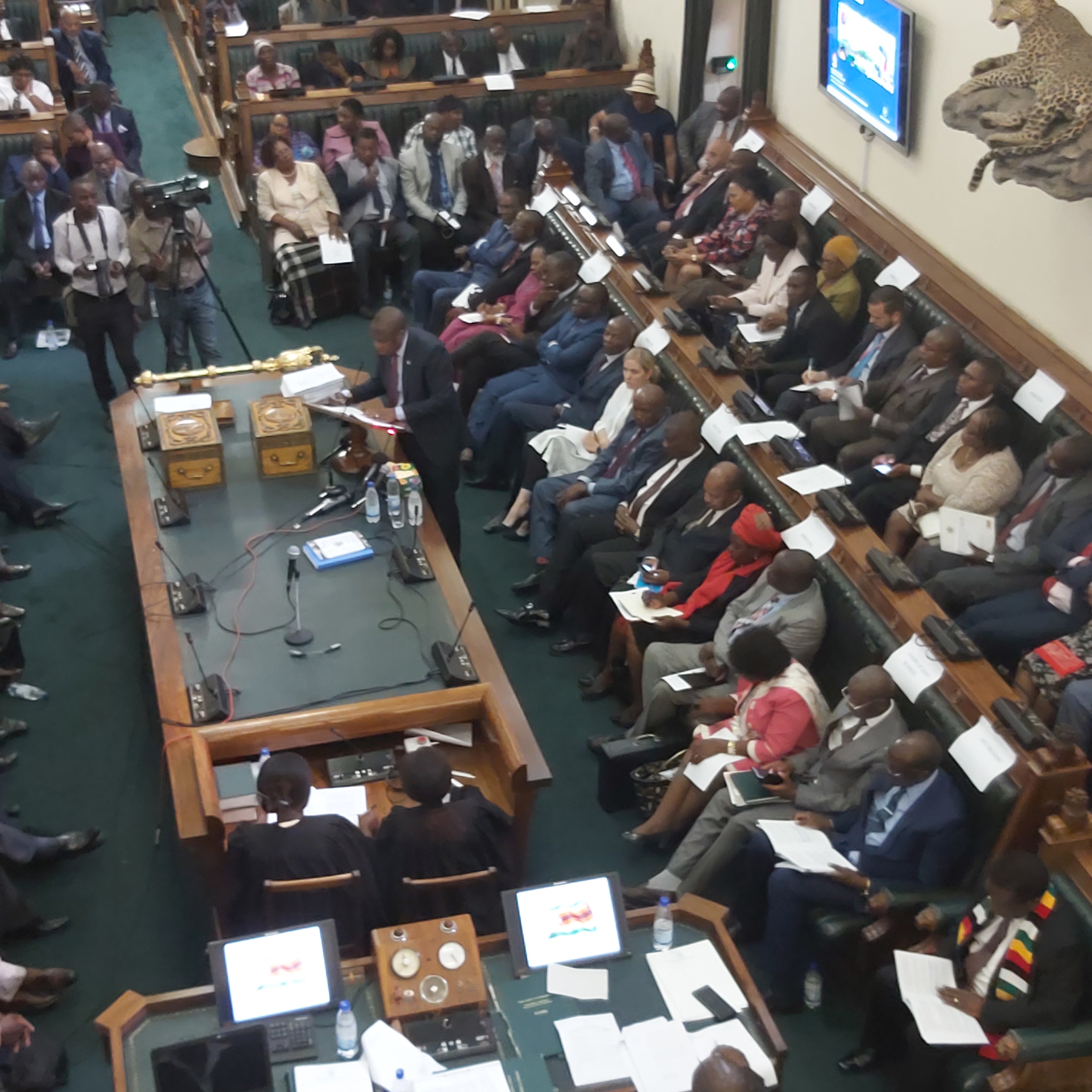Harare (New Ziana) – Zimbabwe’s economy is now expected to grow by 4.6 percent, down from 5.5 percent initially projected, as a result of both internal and external factors, Finance and Economic Development Minister Mthuli Ncube said on Thursday.
Presenting the mid-term budget review and supplementary budget, Ncube said shocks including the Covid-19 pandemic, reduced agricultural output and Russia’s special military operation in Ukraine were weighing down the economy.
“The above global challenges have resulted in rising commodity prices and inflation worldwide and is dampening global growth prospects. As a result, the IMF revised downwards global economic growth projections to 3.6 percent in April 2022, down from the initial projection of 4.9 percent in January 2022,” he said.
“The domestic economy has not been insulated from the global developments, particularly from rising commodity prices and inflation as well as disruptions on supply chains. As a result, domestic economic growth for the year 2022 has been revised downwards from the 5.5 percent initially projected to 4.6 percent, reflecting the impact of the external global environment as well as our own unique circumstances. Growth has also been weighed down by reduced output from the 2021/22 Agriculture season, while other productive sectors are still projected to register positive growth.”
Ncube however said notwithstanding the global and domestic shocks, the economy was recording some positives, including increased foreign currency receipts, a near balanced budget as well as increasing capacity utilisation of the manufacturing sector.
He said Zimbabwe’s exports increased by 33 percent to US$3.5 billion while imports grew by 15 percent to US$3.7 billion in the first half of 2022.
For the full year, exports are projected to reach US$7.3 billion, on the back of stronger commodity prices and increased agricultural and manufactured exports.
Ncube said imports were projected to reach US$8.1 billion driven by fuel, machinery and raw material imports.
As a result, he said, the country’s current account remained favourable with a surplus of US$387.1 million having been registered during the first half of 2022, and the trend is expected to continue for the full year on the back of a strong export performance and remittance inflows.
“The depreciation of the local currency and rising inflation, however, remain a challenge that Government has committed to tackle going forward,” he said.
“Imported inflation contributed significantly to domestic inflation through cost push factors, whilst domestically, adverse inflationary pressures and exchange rate volatility were the main drivers of inflation.
“In response, Government has since introduced a raft of measures, meant to instil confidence, strengthen demand for local currency and foster market discipline to contain inflation.”
In terms of revenue performance, Ncube said the 2022 National Budget was premised on revenue collections of ZWL$850.8 billion (16.8 percent of GDP), expenditures of ZWL$968.3 billion and a target budget deficit of ZWL$76.5 billion (1.5 percent of GDP).
He said revenue collections for the first half amounted to ZWL$506.6 billion, against expenditures of ZWL$534.5 billion, resulting in a budget deficit of ZWL$27.9 billion, against a target deficit of ZWL$45 billion.
Development partners also complemented fiscal resources with an amount of US$190 million having been disbursed towards various projects and programmes.
Of this amount, Ncube said, bilateral partners contributed US$164 million, whilst the remainder came from the multilateral partners.
New Ziana



